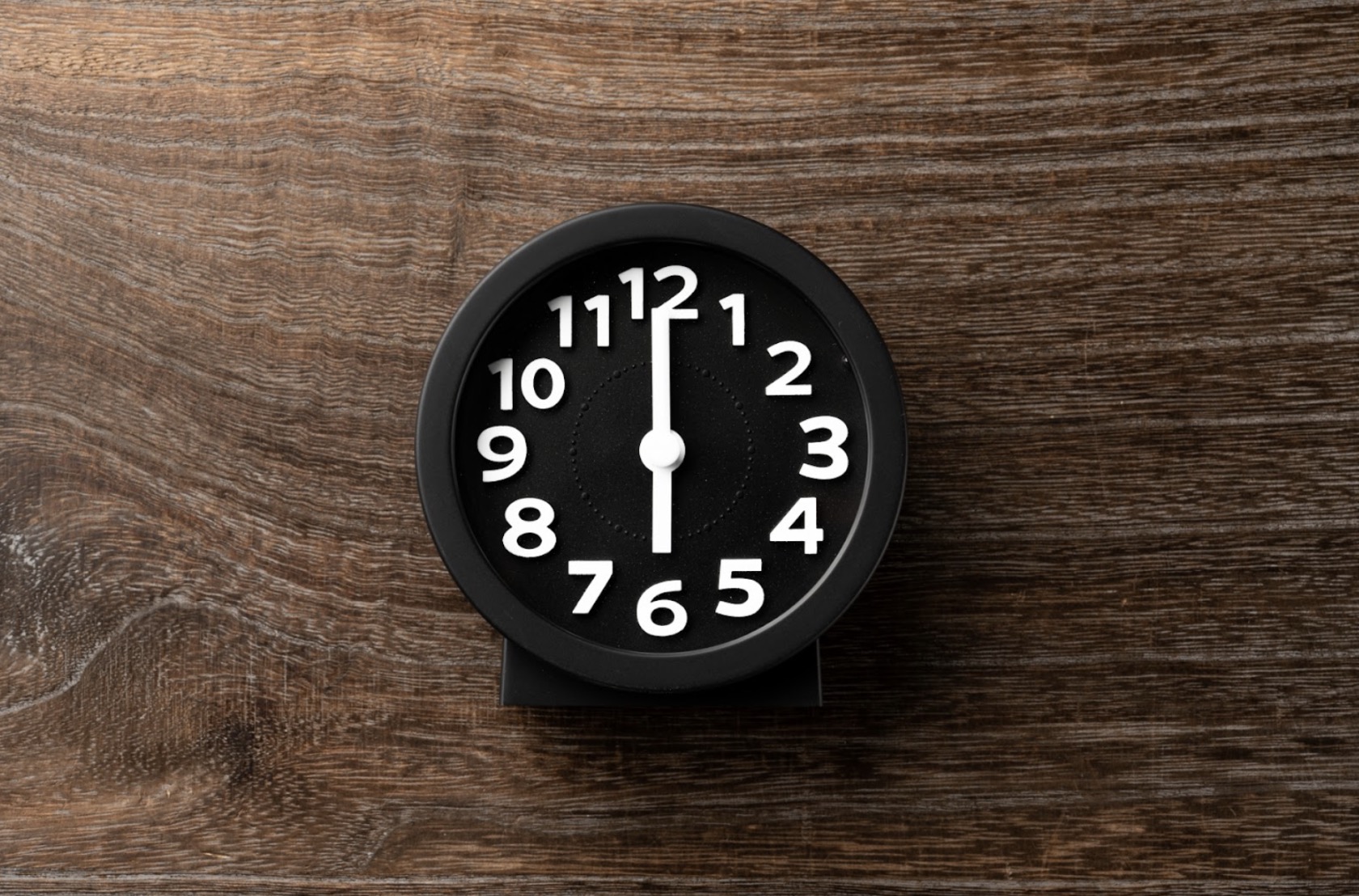What Is a Meditation Timer? How It Helps Your Practice

Meditation seems simple—you sit, breathe, and try to be present. Yet one of the most common challenges, for beginners and even long-term practitioners, is the question of time. How long should I sit? Has it already been ten minutes? Am I done too early? This is where a meditation timer becomes more than just a gadget. It transforms into a quiet companion, a structure that allows you to focus fully on your inner world without worrying about the clock.
What Is a Meditation Timer?
A meditation timer is a tool—sometimes a small physical device, sometimes a simple app—that signals the start and end of your meditation session with a gentle sound. Unlike the sharp alarms on smartphones, meditation timers use bells, chimes, or gongs that match the calm energy of practice. More importantly, they create a boundary, separating meditation from the chaos of digital life.
Benefits of Using a Meditation Timer

- Removes Time Anxiety
Constantly checking the clock interrupts meditation. A timer frees you from that mental burden, so you can go deeper into focus without wondering how long you’ve been sitting. - Supports Consistency and Discipline
Meditation thrives on routine. Setting the same duration daily with a timer builds rhythm and anchors your practice into everyday life. - Prevents Sessions from Being Too Short or Too Long
Beginners often get restless after just a few minutes, while advanced practitioners may unintentionally push beyond comfort. A timer ensures balance—enough time for real depth, but not so much that fatigue undermines the session. - Provides a Safe Boundary for Beginners
For those just starting out, silence can feel overwhelming. A timer offers reassurance by clearly marking when the session begins and ends, creating a sense of safety and containment. - Encourages Gradual Growth
You can extend your sessions little by little. For example, starting with 5 minutes and increasing by 2 minutes weekly. This incremental approach makes growth manageable and sustainable. - Gentle Sounds Over Harsh Alarms
The ending tone of a meditation timer matters. Instead of being jolted by a phone alarm, you’re guided back by a soft chime or resonant gong, leaving the mind calm even as the practice ends. - Creates a Ritualistic Feeling
Meditation timers help mark the practice as something sacred, distinct from daily tasks. Just as lighting incense sets a ritual, pressing “start” on a dedicated timer creates a moment of intentionality.
Types of Meditation Timers in the Market
If you’re considering a meditation timer, here are popular types and examples that are well-loved by practitioners worldwide:
Standalone Devices
- Enso Pearl Meditation Timer
A dedicated device with a clear digital display and soft gong sounds. Its circular design echoes Zen aesthetics, and many meditators appreciate its portability and reliability. - Zen Alarm Clock (Now & Zen brand)
Made of wood and designed to blend into a calming space, these clocks use acoustic chimes to mark time. They feel less like gadgets and more like part of a ritual. - Znewtech Meditation Timer
A modern digital option with adjustable volume, interval settings, and even backlighting. It balances minimal design with practical features.
App-Based Timers
- Insight Timer
A widely popular app that includes a timer function along with a massive library of guided meditations and community features. - Enso App
A minimalist digital timer that displays a fading Zen circle as time passes, perfect for those who want simplicity with a touch of symbolism. - Zenso App
Stripped down to the basics, Zenso offers an ultra-minimalist grey interface with optional chimes, making it ideal for those who want zero distractions. - Calm, Headspace, Buddhify
These apps combine timers with guided sessions, habit tracking, and soothing soundscapes, making them especially helpful for beginners.
Innovative Concepts
- Decima Meditation Timer (Concept)
An analog-inspired device with LED indicators designed to be completely offline. It appeals to meditators seeking a pure, distraction-free experience.
Why Not Just Use Your Smartphone?

On paper, setting a phone alarm seems convenient. But in reality, phones carry digital baggage. Even before meditation begins, notifications, work emails, or social media can derail your focus.
- Phone alarms are usually sharp and disruptive.
- Checking your phone blurs the line between meditation and everyday tasks.
- The very act of handling your phone can spark distractions.
A meditation timer, whether physical or minimalist digital, creates separation. It signals: this is your time to be present.
What About Meditation Apps?
Meditation apps are excellent for building habits, especially at the beginning. They offer structure, guided instructions, progress tracking, and even soundscapes to deepen practice.
Yet, they also keep you tied to a screen. Over time, many practitioners transition toward simple, dedicated timers or even no timer at all, valuing freedom from digital distractions.
The Bottom Line
Meditation timers may seem like small tools, but their impact is large. They free you from worrying about time, support growth and consistency, and set meditation apart as a sacred ritual. Whether you prefer a simple wooden Zen clock, a sleek digital device, or a minimalist app, the right timer can make your practice steadier, calmer, and more meaningful.
Frequently Asked Questions

FAQ 1: What is the purpose of a meditation timer?
Answer: A meditation timer helps you focus by marking the session length with gentle sounds, so you don’t worry about time.
Real Results: Practitioners report that using a timer improves concentration and reduces stress during practice.
Takeaway: A calm timer creates calm meditation.
FAQ 2: Can I just use my phone as a meditation timer?
Answer: While possible, phones bring distractions like notifications and harsh alarms.
Real Results: Over 60% of meditators prefer dedicated timers over phones to avoid distraction.
Takeaway: Free your practice from digital noise.
FAQ 3: What kinds of meditation timers exist?
Answer: Options include physical devices with chimes, minimalist apps, and hybrid models.
Real Results: Zen Alarm Clocks and Insight Timer are among the most widely used.
Takeaway: Choose the timer that best supports your lifestyle.
FAQ 4: What sounds do meditation timers use?
Answer: Chimes, gongs, and bells are common, offering a gentle transition.
Real Results: Users say soft tones reduce feelings of being startled awake.
Takeaway: A gentle sound nurtures a gentle mind.
FAQ 5: How long should I set my timer for?
Answer: Beginners may start with 5–10 minutes, eventually working up to 20–30 minutes.
Real Results: Even 10 minutes daily shows measurable stress reduction.
Takeaway: Small steps lead to deep calm.
FAQ 6: Are meditation timers good for beginners?
Answer: Yes. They provide structure and reduce uncertainty about time.
Real Results: New meditators often say timers gave them the confidence to stick with practice.
Takeaway: Clear boundaries build steady habits.
FAQ 7: Do I need a physical device, or will an app do?
Answer: Apps are great for beginners, but physical devices eliminate screen exposure.
Real Results: Experienced practitioners often migrate to physical timers over time.
Takeaway: Your needs may evolve with your practice.
FAQ 8: Can timers help me meditate longer?
Answer: Yes, by letting you gradually increase duration without pressure.
Real Results: Many practitioners double their meditation time within months using incremental increases.
Takeaway: Progress grows when time feels safe.
FAQ 9: Do advanced meditators still use timers?
Answer: Some rely on intuition, while others keep timers for structure. It’s personal choice.
Real Results: Both approaches are common at meditation retreats.
Takeaway: Tools shift, presence remains the goal.
FAQ 10: Should I buy a meditation timer device?
Answer: If you want ritual, reliability, and freedom from screens, yes. If not, an app may suffice.
Real Results: Many long-term meditators say buying a simple timer was a turning point in their journey.
Takeaway: The right tool deepens your path.
Related Articles
- Harvard T.H. Chan School of Public Health — A study reported that just 10 minutes of daily mindfulness can reduce depression and anxiety while motivating healthier lifestyle habits.
- University of Warwick, UK — Findings show that short mindfulness practices (10 minutes per day) improve well-being, reduce anxiety and depression, and encourage positive lifestyle changes.
- 5-Minute Mindfulness Meditation with GASSHO: A Simple Guide — On the official Gassho blog, you can read about the benefits of practicing 5 minutes of mindfulness and how it brings calm into daily life.
- “Meditation Near Me” — Finding Stillness Right Where I Am — An introductory guide to mindfulness and a personal story about the benefits of practicing 5 minutes of meditation.



